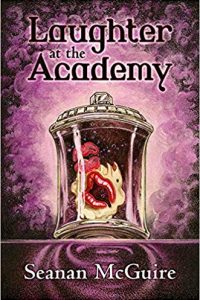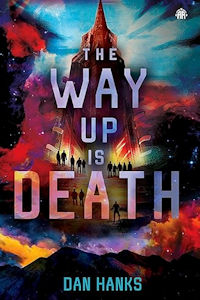Gary K. Wolfe Reviews Fantasy: How It Works by Brian Attebery
 Fantasy: How It Works, Brian Attebery (Oxford University Press 978-0192856234, $27.95, 208pp, hc) October 2022. Cover by Charles Vess.
Fantasy: How It Works, Brian Attebery (Oxford University Press 978-0192856234, $27.95, 208pp, hc) October 2022. Cover by Charles Vess.
If Clute is essentially a practical critic, Brian Attebery has earned a substantial reputation starting from the academic end of the spectrum, beginning with The Fantasy Tradition in American Literature way back in 1980 and continuing through his recent editorship of the Ursula K. Le Guin volumes for the Library of America. Attebery writes personably and with grace, avoiding the contortionist prose of scholars intent on performing arcane theory as though it were a martial art (can you get a black belt in reception theory?), and he can invoke Wallace Stevens or Anne Sexton as easily as Mikhail Bakhtin and Raymond Williams. Even the title of his new book, Fantasy: How It Works, suggests that he wants to reach a broader audience than the usual club, and most fantasy readers will find much to ruminate on, as well as, almost inevitably, a few points to quibble with. Rather than a continuous argument, it’s essentially a collection of essays more-or-less knitted together by a final chapter that concisely summarizes Attebery’s main propositions throughout the book.
Attebery is widely read, not only in traditional classics and folkloric sources, but in current work as well, and he generally avoids paths that have already been beaten down to the bedrock. Middle-earth and Narnia barely earn more than passing mentions, but he offers extended discussions of work by Nalo Hopkinson, Kai Ashante Wilson, Nnedi Okorafor, G. Willow Wilson, Aliette de Bodard, Nike Sulway, and Jo Walton, placing each within the context of what he views as characteristic strategies of contemporary fantasy. Ursula K. Le Guin shows up more than any other writer, in just about every essay, and while this might reflect her long association with Attebery, it may also suggest just how dominant her influence has been in the last half-century of discussions about SFF. Apart from touching upon very contemporary examples of the varieties of fantasy, Attebery raises some interesting and important questions. His arguments about how fantasy reflects real-world experiences may be largely familiar, but his discussion of the artifices underlying “realistic” fiction, in the context of the “family story” tradition in children’s literature, is fascinating. So is his exploration of fairytale retellings by male authors, even though some readers might think of a few examples he’s overlooked. A couple of chapters, while persuasive in their own right, tend to drift into related areas of SF or horror. “Young Adult Dystopias and Yin Adult Utopias” makes another familiar point – that utopian fiction largely fell out of favor because it’s boring – but usefully brings Tom Moylan’s notion of the critical utopia to bear on the huge popularity of dystopian fiction for young readers. And Attebery’s otherwise provocative discussion of fantasy and fear is somewhat constrained by his own admitted indifference to horror stories.
But there are enough good ideas here to set off a whole con’s worth of panel discussions. The most ambitious essay, and the centerpiece of the book, describes what Attebery calls a “mitochondrial theory of literature,” which deals with the question of intertextuality, or how texts talk to each other. He begins with Nike Sulway’s wonderful story “The Karen Joy Fowler Book Club”, which links not only to Fowler, but to Tiptree, to Julie Phillips’s biography of Tiptree, and of course to Jane Austen. It’s rather ingenious to describe such clusters as “a club whose members are books,” but like many humanities scholars, Attebery gets a bit enamored of overextended science metaphors, spending more time than he needs to explaining rizomes, underground forest networks, and mitochondrial DNA. Isn’t it clear enough to say that books talk to each other? Another idea, equally fascinating for the way it’s found all through fantastika (a Clutean term which Attebery adopts), is what he calls the “distributed self,” in which the elements of personality are splintered into different characters. His examples include Poe’s Usher twins, Peake’s Gormenghast, Russ’s The Female Man, and Philip Pullman’s His Dark Materials series. Like any good critic who’s onto something useful, his examples prompt us to think of our own additions to the list, and – again like any good critic – his most trenchant observations open up the field to us rather than closing it off with totalizing pronouncements. Fantasy: How it Works is the beginning of a lot of good discussions.
Gary K. Wolfe is Emeritus Professor of Humanities at Roosevelt University and a reviewer for Locus magazine since 1991. His reviews have been collected in Soundings (BSFA Award 2006; Hugo nominee), Bearings (Hugo nominee 2011), and Sightings (2011), and his Evaporating Genres: Essays on Fantastic Literature (Wesleyan) received the Locus Award in 2012. Earlier books include The Known and the Unknown: The Iconography of Science Fiction (Eaton Award, 1981), Harlan Ellison: The Edge of Forever (with Ellen Weil, 2002), and David Lindsay (1982). For the Library of America, he edited American Science Fiction: Nine Classic Novels of the 1950s in 2012, with a similar set for the 1960s forthcoming. He has received the Pilgrim Award from the Science Fiction Research Association, the Distinguished Scholarship Award from the International Association for the Fantastic in the Arts, and a Special World Fantasy Award for criticism. His 24-lecture series How Great Science Fiction Works appeared from The Great Courses in 2016. He has received six Hugo nominations, two for his reviews collections and four for The Coode Street Podcast, which he has co-hosted with Jonathan Strahan for more than 300 episodes. He lives in Chicago.
This review and more like it in the September 2022 issue of Locus.
 While you are here, please take a moment to support Locus with a one-time or recurring donation. We rely on reader donations to keep the magazine and site going, and would like to keep the site paywall free, but WE NEED YOUR FINANCIAL SUPPORT to continue quality coverage of the science fiction and fantasy field.
While you are here, please take a moment to support Locus with a one-time or recurring donation. We rely on reader donations to keep the magazine and site going, and would like to keep the site paywall free, but WE NEED YOUR FINANCIAL SUPPORT to continue quality coverage of the science fiction and fantasy field.
©Locus Magazine. Copyrighted material may not be republished without permission of LSFF.






